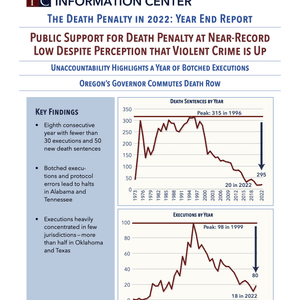
During the sentencing phase of capital cases, sympathetic evidence about the life of the defendant is typically presented to jurors, who then must decide whether such mitigating factors merit sparing his or her life. Mitigation specialists play a crucial role in collecting such evidence. They document “the traumas, policy failures, family dynamics and individual choices that shape the lives of people who kill.” According to an article from The Marshall Project, there are fewer than 1,000 mitigations specialists nationwide, yet they’ve “helped drive down death sentences from more than 300 annually in the mid-1990s to fewer than 30 in recent years.”
“My job is to help people look at my client as a human being,” Elizabeth Vartkessian, a leading mitigation specialist said, “The system shouldn’t even require it, because it shouldn’t be a question.”
The article by Maurice Chammah describes the challenges mitigation specialists face to humanize their clients. They “collect thousands of pages of records from hospitals, schools, jails and courts, and interview dozens of people in each case. There are no shortcuts to sensitive revelations of family secrets: A crucial story of childhood sexual abuse or a severe brain injury might not appear until the fifth visit with an estranged cousin who happened to witness a key event decades before.”
Sara Baldwin (pictured), another prominent specialist, described her role as a “witness who knows and understands, without condemning,” and the process as evaluating the killer “through a more merciful lens.” She continued, “The horrible thing to see is the crime. We’re saying, ‘Please, please, look past that, there’s a person here, and there’s more to it than you think.’”
Chammah concludes that “mitigation specialists force us to ask: When we look at the face of someone who has done great wrong, and stare into the void of what we don’t know, do we see a monster or a soul in torment?”
Sentencing Data
Jul 21, 2023


